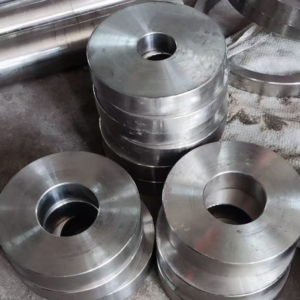Get in touch with us
Leave a message
Discover our comprehensive stainless steel forgings collection, featuring austenitic, ferritic, and duplex grades for diverse industrial applications. From high-performance industrial grades to specialized corrosion-resistant options, we offer various material compositions and finishes to meet your requirements. Our expertise covers multiple stainless steel types, ensuring optimal performance and value across different price points. Whether you need standard or custom specifications, our professional team provides tailored solutions backed by industry expertise.

Stainless Steel Coil is governed by standards like ASTM A240, A480, and A666, ensuring quality across grades such as 304, 316, 430, and 201. These standards define properties like corrosion resistance, thickness, and finish. For instance, a 304 Stainless Steel Coil aligns with ASTM A240 for general use, while 316 offers superior pitting resistance per the same spec. Classifications split into austenitic (e.g., 304, 316), ferritic (e.g., 430), and martensitic (e.g., 410) types, with grades further distinguished by finishes like 2B finish stainless steel or brushed options. Stainless Steel Coil, typically ranging from 0.3mm to 3mm in thickness, adheres to similar standards but is often tailored for flexible applications.
Stainless Steel Coil comes in a wide range of sizes to suit diverse needs. Common dimensions include:
This flexibility ensures Stainless Steel Coil fits everything from small fabrications to large industrial builds.
Stainless Steel Coil comes in various types and finishes, each tied to specific manufacturing processes:
| Grade | Characteristics | Applications |
|---|---|---|
| 304 Stainless Steel Forgings | Excellent corrosion resistance, Good formability and weldability, Non-magnetic, Moderate strength | Food processing equipment (e.g., valves, fittings), Architectural components, Chemical processing parts, Automotive components |
| 316 Stainless Steel Forgings | Superior corrosion resistance (especially in chloride environments), High durability, Non-magnetic | Marine fittings, Chemical processing equipment, Surgical implants, Coastal architectural forgings |
| 2205 Duplex Stainless Steel Forgings | High strength, Excellent resistance to stress corrosion cracking, Good weldability | Oil and gas industry (e.g., valves, pumps), Chemical tanks, Structural components (e.g., bridges), Pulp and paper industry |
| 410 Stainless Steel Forgings | High strength and hardness (when heat-treated), Moderate corrosion resistance, Magnetic | Cutlery, Turbine blades, Valves and pump parts, Fasteners |
A:Yes, stainless steel can be forged using hot forging techniques. Grades like 304 and 316 are commonly forged into parts like valves, fittings, and flanges, improving strength and grain structure.
A:While stainless steel forgings are strong, titanium alloys and high-nickel alloys like Inconel are often stronger for forging, offering higher tensile strength (up to 1200 MPa) and better corrosion resistance for extreme applications.
A:Grades 304 and 316 are widely used for stainless steel forgings due to their corrosion resistance and formability. For higher strength, 17-4 PH is a popular choice, offering excellent mechanical properties post-forging.
A:Forged stainless steel resists rust due to its chromium content, but in harsh environments (e.g., saltwater), 316 forgings perform better than 304. Surface treatments can further enhance corrosion resistance.
A:Stainless steel forgings are expensive due to high material and processing costs. They can also be prone to cracking if not forged at the right temperature, and complex shapes may require additional machining.
A:Stainless steel forgings require temperatures between 900°C and 1200°C (1650°F to 2200°F), depending on the grade. For example, 304 is forged at 1100-1150°C to ensure proper workability without scaling.

Professional manufacturer of premium specialty alloys, offering stainless steel, Hastelloy, nickel-based alloys and processing services. Delivering superior metallurgical solutions for aerospace, petrochemical, marine engineering and other demanding industries.